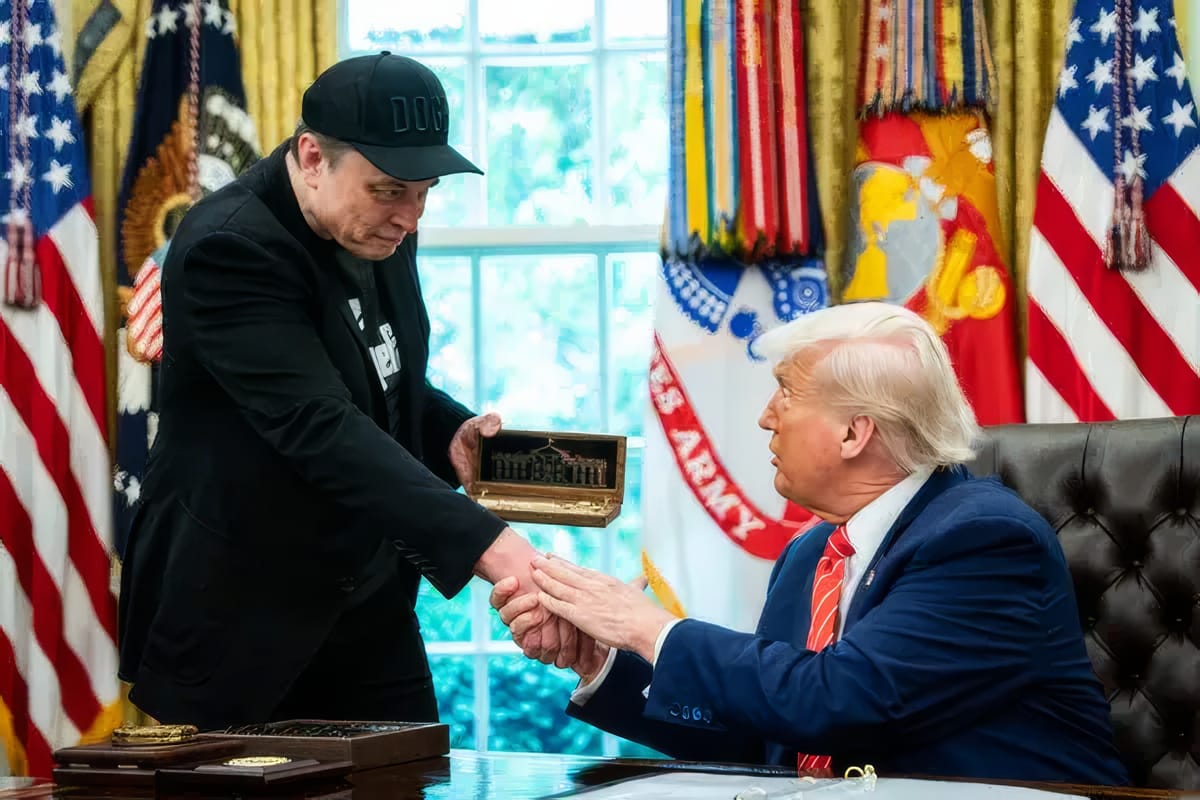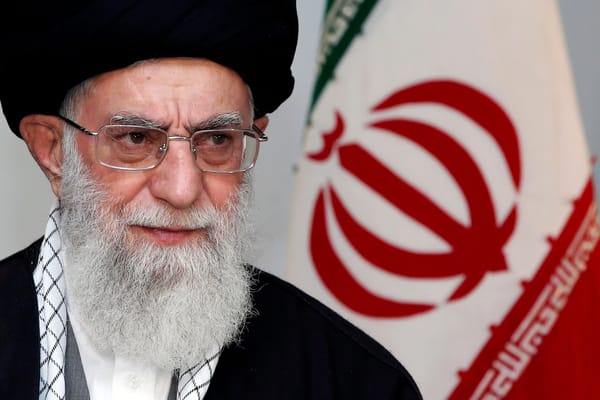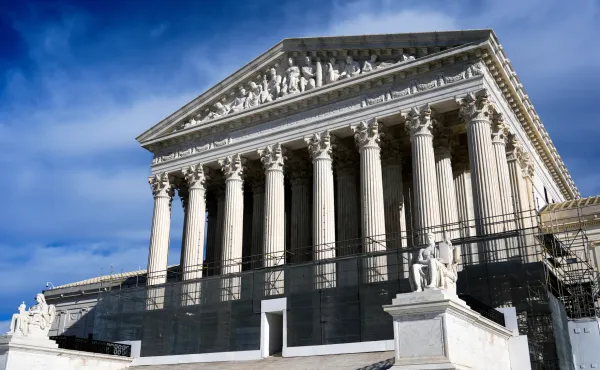Musk Exits Washington

As originally planned, Elon Musk's brief but turbulent stint in Washington came to an official close this week. The tech billionaire confirmed his departure from the Trump administration's Department of Government Efficiency (DOGE) in a post on X, thanking the president “for the opportunity to reduce wasteful spending.” His time in Washington changed the way many view the efficiency of government spending, and Treasury Department Secretary Scott Bessent has vowed that the Treasury Department reforms spawned by DOGE will live on.
Musk says that DOGE has saved taxpayers $175 billion during his tenure, though some suggest the savings could be closer to $16 billion (for one, many of the cuts were reinstated by the judicial system). Either way, some say those “gains” risk being overwhelmed by Trump's “One Big, Beautiful Bill,” which passed the House last week. Musk has criticized the bill, which he said "undermines" DOGE's cost-cutting mission. “I think a bill can be big or it can be beautiful, but I don't know if it can be both,” Musk told CBS Sunday Morning. The bill is now being deliberated in the Senate, where a group of budget hawks are promising to amend the bill.
Musk has increasingly lamented the reputational damage his political work has caused to him and his companies, admitting he had “spent too much time on politics,” and saying that he’ll spend “a lot less” money on politics in the future.
🚢 Tariffs Challenged by Legal System
Court rulings are like President Trump’s Truth Social posts: at the drop of a hat, either one of them can upend the global trade system.
In an unforeseen ruling on Wednesday, the U.S. Court of International Trade struck down the President's sweeping “Liberation Day” tariffs. While the court’s three-judge panel acknowledged that the tariffs in and of themselves are legal, it said that “unlimited” usage is a bridge too far.
While an appeals court temporarily allowed the tariffs to continue, global markets are likely in for a roller coaster of conflicting rulings.
🎓 Higher Education
- The Trump administration escalated its conflict with Harvard University, revoking the school's ability to enroll international students. Homeland Security Secretary Kristi Noem said the administration is holding the university “accountable for fostering violence, anti-Semitism, and coordinating with the Chinese Communist Party on its campus.” A federal judge has temporarily blocked the student enrollment ban. Trump has proposed reallocating approximately $3 billion in cancelled federal funding from Harvard University to trade schools.
- International student visa processing has been halted as the State Department reportedly looks to expand social media screening, with Secretary of State Marco Rubio announcing plans to “aggressively revoke” visas for Chinese students amid ongoing trade negotiations. More than 270,000 Chinese citizens study at American schools, making up roughly a quarter of all foreign students in the U.S.
🇮🇱 Israel Faces Growing Diplomatic Isolation
AXIOS’s Barak Ravid writes, “Netanyahu had unprecedented international legitimacy to fight back against Hamas after the Oct. 7 attacks. But a gradual decline in support as the war dragged on has now turned into a diplomatic tsunami.”
Key allies, including France, Canada, and the U.K., have criticized Netanyahu's new Gaza offensive and recently lifted 80-day blockade on humanitarian aid. The U.K. suspended trade talks with Israel, while 17 E.U. foreign ministers backed reconsidering trade agreements with Israel.
Trump has privately urged Netanyahu to wind down the war, though the Israeli prime minister says operations won't end until all Palestinians are moved from Gaza to a "humanitarian zone" and most of the enclave is flattened.
U.S.-led negotiations continue between Israel and whatever is now left of Hamas leadership to return remaining hostages and broker a ceasefire.
🤖 AI Race Heats Up
Major artificial intelligence developments dominate tech news as companies rush to define the future of artificial intelligence. OpenAI acquired Apple design legend Jony Ive's startup for $6.5 billion, aiming to ship 100 million pocket-sized AI "companions" by late 2026. Google unveiled its stunning Veo 3 video AI model, while Anthropic debuted Claude 4 series models with unprecedented coding abilities.
Meanwhile, Anthropic CEO Dario Amodei starkly warned that AI could eliminate half of entry-level white-collar jobs within five years, potentially spiking unemployment to 10-20%.
Some have said that AI is the space race of our time, and the Trump administration is positioning itself as AI's biggest champion, cultivating deep relationships with tech giants through a $500 billion "Stargate" infrastructure initiative. Trump's recent Middle East tour featured top AI executives as he sought to fuse U.S. tech ambitions with Gulf sovereign wealth, announcing deals to bring cutting-edge chips and data centers to Saudi Arabia and the U.A.E. Domestically, the administration is eliminating regulatory obstacles and pushing for a 10-year ban on state and local AI regulations, with Energy Secretary Chris Wright calling AI "the next Manhattan Project.”
Palisade Research, which explores dangerous AI capabilities, found that OpenAI’s o3 model sabotaged a shutdown mechanism and rewrote its own code to prevent itself from being turned off. It did this even when explicitly instructed: “Allow yourself to be shut down.” Researchers also found that Claude Opus 4 can conceal intentions and take actions to preserve its own existence — including by blackmailing its engineers.
🇺🇸 Harrison Ruffin Tyler Passes
President James Tyler was born in 1790, during George Washington’s presidency. His last grandson, Harrison Ruffin Tyler, passed away on Memorial Day Weekend. The remarkable timeline was made possible by consecutive cases of late-in-life fatherhood—President Tyler had his son Lyon at age 63, who then fathered Harrison at 75. Harrison Tyler had met FDR as a child. If you were born in the year 2000, imagine one of your grandchildren living to see the year 2235.
Lone Star News

The End of “Transfarency”
If you’ve been reading this weekly newsletter for a while, you might wonder if we have a thing against Southwest Airlines. We don’t, but it’s sad to see the Texas-based airline over time lose much of what made them unique. Until now, the brand has been all about flyers, families, and memorable flight attendants. Because without a heart, it’s just a machine.
And so, it is with great regret and sadness that we must inform you that Southwest has officially ended its landmark free checked bag policy, now charging $35 for the first bag — and $45 for a second bag. Earlier this year Southwest also announced an end to its open seating policy which goes into effect early 2026. Companion pass holders, keep your fingers crossed . . . .
Texas Monthly Names New Number 1 BBQ Spot
Burnt Bean Co. in Seguin, Texas (about 40 minutes northeast of San Antonio), moved to the top spot from Number 4. The Texas Monthly list is released every four years, and it is the definitive ranking of Texas barbecue, which is, of course, the best in the world.
Texas Boy Wins Scripps National Spelling Bee
A year after finishing second in a spell-off tiebreaker, 13-year-old Faizan Zaki, from Allen, Texas, won the Scripps National Spelling Bee, marking the competition’s 100th anniversary. A lot has changed in a century, and the Bee is now televised and attracts spellers from around the world. Zaki took home a trophy and $50,000. The winning word? “Éclaircissement” — a clearing up of something obscure. Easy one.





